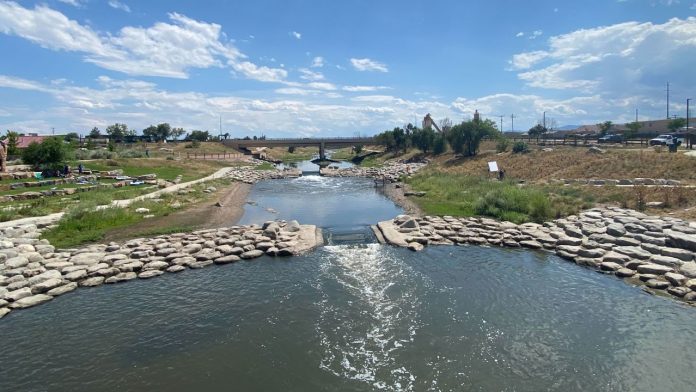We are aware India is still largely considered an Agriculture-based economy whose dependence on monsoon rains potentially possesses the wherewithal to make or mar the growth factors on several counts. As such, the dependence on storage, disbursal, and judicious usage of water assume greater importance for not only ensuring adequate production of food grains to sustain the huge population but also provision the extremely crucial resource for potable purposes. As such, it goes without saying that monsoon rains always play a critical role in the country’s overall well-being.

PC: Hans News Service
Of course, whenever the Indian Meteorological Department predicts normal rainfall during the southwest monsoon, the entire country heaves a huge sigh of relief. In the same vein, when the IMD predicts below or deficit rainfall owing to a variety of reasons including erratic weather patterns, we all feel the pressure of the unknown since a shortfall in rains is bound to create distress everywhere. Since the aspirational society of India wishes to be counted among the most developed nations, the dependency on monsoon rains severely dents our prospects in the absence of scientific, holistic, and pragmatic methods of water conservation supported by a legislative framework.
Look not far from what’s happening in Karnataka over the release of Cauvery waters to Tamil Nadu. The state has witnessed two bandhs in a span of four days leading to tremendous inconvenience to the public as well as to businesses, big and small.The moot point to ponder over here is why there should be a bandh in the first place. Because there simply exists no clear-cut policy or distress formula to share the water equitably when the monsoon rains fail. As is its wont, the matter reached the SC which rightly refused to intervene in a plea by Tamil Nadu over the matter. This recurring fight between states over the sharing of the waters is not new and invariably flares up in years of deficient rainfall.
The southern water disputes follow a pattern nearly replicated in every other inter-state water dispute. GOI’s Jal Shakti records five such tribunals, all several decades old. The Cauvery dispute is for all official purposes resolved but, of course, it’s not looking at the prevailing tension between the two states. Indeed, there are lessons here on how not to tackle inter-state water conflicts. Experts have long held that tribunals for every dispute do not lead to lasting solutions. Dispute resolution operates almost on a permanent adhocism; in some disputes ‘formulas’ themselves cause further dispute. While tribunals largely follow international practice and norms – equitable, reasonable water utilization and mutual benefit – their decisions have little legal backing.

PC: The Indian Express
When states challenge these, as is happening currently, the legal tangle only enlarges the dispute and delays resolution. Erratic and variable rainfall, rapidly depleting groundwater, land-use modifications, and water-intensive cropping patterns are intensifying river disputes. Note that without urgently prioritizing a legislative framework that gives tribunals teeth, the bickering between states will continue, benefiting no one. The authorities must come up with a lasting legal/legislative solution to this.






